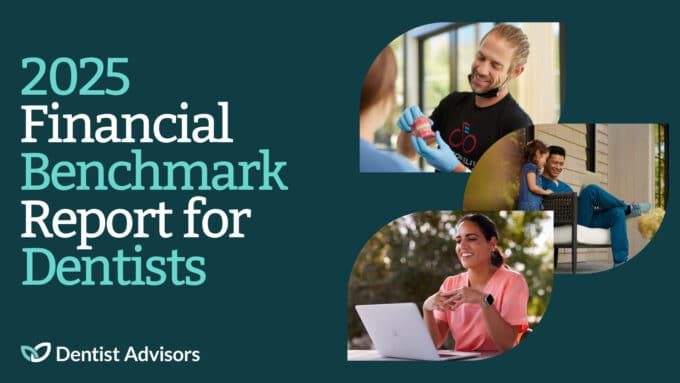Your Growing Practice Needs Access to Cash
If you look back at the advice I’ve given over the years, you’ll find I consistently hammer on certain themes—the financial fundamentals that help wealth grow. Having access to cash is one of those. When something unpredictable comes along, or when growth opportunities present themselves, it’s important that you can easily convert a certain amount of your assets into cash. The financial term for this is liquidity.
Do you have real estate investments you’re really proud of? Or maybe you’ve built up hundreds of thousands, or even millions of dollars in practice equity. Even if you feel like you’re doing really well, your financial security could still be at risk. How? If you don’t have adequate access to cash to cover the ups and downs that come with practice or real estate ownership, you could be putting the assets you’re accumulating at risk.
Not enough dentists have investments they can quickly turn into cash. These dentists spend their entire career accumulating equity in real estate—a few rental properties, maybe the building where they practice. They methodically pay off most of the debt, but they’re still leveraged.
Then when collections decline and income is down, which occurs to almost every practice from time to time, lenders aren’t as willing to refinance. I’ve watched this lack of liquidity cause a snowball effect. Whatever cash is handy quickly gets used up and if things are really tight, other assets have to be sold so payments can be made. This lack of access to cash results in rushed decisions, unnecessary stress, missed opportunities, and in the end may reduce overall net worth.
Access to cash investments is a key ingredient for a secure business. As I said earlier, liquidity is money you can get to in a few days, without a penalty. Liquid assets include cash in a bank account, as well as investments such as stocks, bonds, mutual funds, or ETFs (exchange-traded funds).
Non-liquid funds, on the other hand, are your investments that are tied up in things like qualified retirement plans (401Ks, IRAs, profit sharing, pensions), real estate, and practice equity. Getting cash out of them is difficult and results in a 10% penalty plus taxes.
Appropriate levels of liquidity allow you to make the right investments in your practice—at the right time. Those liquid assets will come in handy when it’s time to start your first or second location; when you come across the right opportunity; when you’re ready to hire the right associate; or if you want to pay off debts completely to free up cash flow instead of incrementally depleting your reserves.
So what’s the right amount of liquidity? If you are a practice owner, before you dedicate money to debt reduction or investments, make sure you maintain at least 6 months personal living expenses in liquid assets. For business liquidity, stick to 1.5 times your monthly overhead. For larger practices trying to grow and expand, you may want to have as much as 2 to 3 times your monthly overhead.
Conclusion—there’s a correlation between liquidity and good decision-making. Having adequate liquidity helps you think more rationally and make better choices. You’ll be able to invest in the right places in your practice and not be pressured by short-term demands. Lack of liquidity causes short-term thinking, which can lead to poor decision making. The people who grow their wealth with the least amount of stress are those who understand the importance of being liquid from the very start of their career.
At Dentist Advisors, we can help you take control of your financial future. To book a free consultation, go to www.DentistAdvisors.com and click “Book Free Consultation.” Or, call us at 833-DDS-PLAN to set up an appointment.
To learn more about the importance of liquidity, listen to our “Why You Need to Know Your Liquid Term” podcast.




